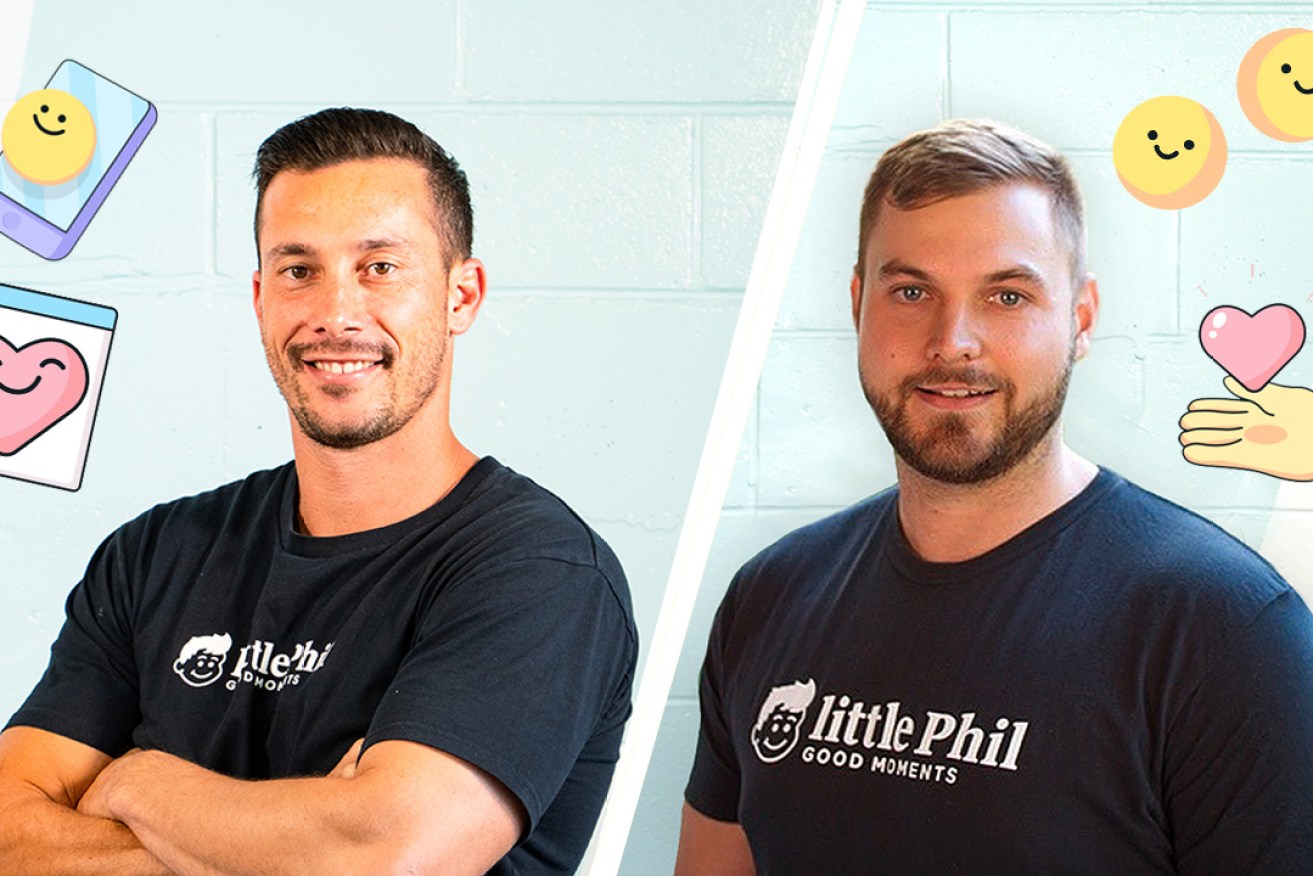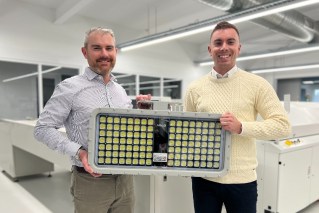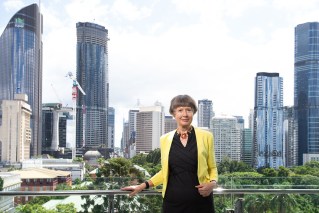
Coast ‘micro-philanthropy’ company aims to make the little things count
A new offering by Gold Coast micro philanthropy platform Little Phil is linking charities and a millennial workforce demanding companies give back.

Gold Coast Little Phil co-founders Mat Sayed andJosh Murchie.
Little Phil, which is short for Little Philanthropist, is transforming traditional donations to charities by using innovative technology to track micro donations but is also having a decidedly mega impact on global charities and, potentially, workplaces worldwide.
The Gold Coast-based non-profit platform only started in 2017, aiming to disrupt the charity sector and lift the lid on where fundraising goes by enabling donors to track their money from start to finish.
Using blockchain technology, the platform means givers have peace of mind knowing their funds are going to real, verified recipients and being used to make a difference.
As well as offering greater transparency about where the funds go and what they are used for, the Little Phil donation tracking technology helps cut administration costs, which in some cases eat almost 70 per cent of donations.
The technology has effectively helped prevent third party gouging of funds that have been donated.
And, when comedian Celeste Barber raised $51 million for bushfire volunteers in 2019 only to have the money tied up in court for almost a year, the rapidly-scaling tech start up also found a new niche.
The same technology also helps prevent legal challenges over fundraising dollars, because it puts the power about where the money goes in the hands of the donor rather than the recipient.
It does this with a “smart contract” that is embedded in the digital code at the time of the donation and is stored in transparent, shared databases, allowing the giver to see where their money has gone from the moment they give, all the way through to the receiver.
Now, having applied the blockchain technology to micro donations, Little Phil is launching its new “Company Giving” initiative.
The initiative aims to transform workplace giving at a time when companies are increasingly focusing on social responsibility and are donating more than ever before.
Little Phil co-founder and General Manager Mathew Sayed said workplaces were entering a new era of corporate giving as a way to attract and secure workers who had become more choosey about the company they were prepared to work for.
Latest figures show this new frontier of corporate giving saw Australia’s top 50 corporate givers last year donate around $1.2 billion, which is $42 million more than in 2020.

How millennials are turning workplaces into big donors
Sayed said research conducted by Little Phil found there was a huge push for corporates to donate more.
But the generation emerging as the new dominant workplace demographic were less confident donating – without transparency around where the money was being spent.
“We looked at the workforce that was more dominated with baby boomers as the boss guys, they were the ones with their finger on the trigger, making decisions,” Sayed said.
“We found that generation were more accustomed to the old-style workplace giving models where they would sign up for money to come out of their monthly pay, like set and forget. Or they’d donate through a tin can shaker.
“But that has changed, and millennials have been coming up into the more senior positions. Millennials are more digital natives and more accustomed to new technology coming in and shaping how we live our lives.
“We found millennials weren’t giving. They wanted to, but the biggest issue was how to know where the money was going.”
Sayed said that as the next generation of workplace decision-makers was emerging, the pandemic was also contributing to a complete shift in employees’ attitudes to jobs, work and life, dovetailing with a new work from home revolution and the ‘great Australian resignation”.
People were seeking different types of work or careers, and had the choice over who to work for, where and even when they work, he said. 
“What we found was companies were really struggling to retain their employees, there was too much competition in the market,” Sayed said.
“Companies were offering all sorts of perks, but we found that millennials and the younger generation didn’t care so much about the perks and salary, but they did care about what the company was doing.
“We are living in a world where the most socially-conscious generation is coming into the work force in higher positions, and what we saw was a large number of employees were going to companies that were creating some sort of positive impact and that CSR (corporate social responsibility) was undergoing an explosion.”
Little Phil’s findings are backed by research by Deloitte last year that found 44 per cent of workers felt they belonged more in a workplace that made charitable contributions.
The importance of CSR in attracting and retaining talent had also contributed to some of the largest Australian corporate donations ever made.
The 2021 Giving Large report found BHP last year gave away $234 million to causes such as social inclusion, the environment and Indigenous communities. Coles donated $124 million to support food rescue, health and education.
Atlassian donated $13.4 million to education causes through the Atlassian Foundation and the Pledge 1% movement it set up with Salesforce in 2014 where companies donate 1 per cent of annual profits, 1 per cent of employee time, 1 per cent of company equity and 1 per cent of product annually.
Around 1300 Australian companies, including tech darling Canva, venture capitalist Blackbird, and Townsville-based SafetyCulture, have signed the Pledge 1% movement along with more than 15,000 companies worldwide.
Sayed said Company Giving harnessed the desire of companies to donate more, attract and retain workers, link them to reputable charities, and empower employees.
“We came up with concept of instead of workplace giving where an employee gives their money, a company gives a credit to each employee and then they can choose to give to wherever they want to on any charity on the platform. And we have 58,000 charities on the platform.”
How companies are giving more to charity
Sayed said Little Phil was helping forge a new era of empowering employees to choose where company donations should go and being able to track their impact.

“Some of the best products in the world have arisen from factors outside of their control. We are in a situation which might not be great for the world as there is a great deal of need, but what we are providing is right at the time it is needed,” Sayed said.
“Our solution does not cost charities money and does not cost businesses money. If we can provide this so money gets to where it needs to go, that’s a good result.”
Following a trial with six companies, Sayed said Little Phil’s Company Giving would be released nationwide ahead of a global roll out.
It would mean employees could select not-for-profits or community causes they were passionate about and provide direct financial support, rather than not having a choice in a generic company-wide program.
“This is about enabling a continuous donation stream to flow through to the not-for-profit sector, all while allowing companies to retain the charitable tax benefits and letting employees support causes they care deeply about. At the same time companies can create a better culture, which leads to higher retention and employee satisfaction,” he said.
















